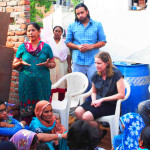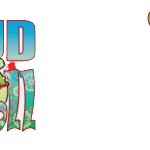“Birds do it, Bees do it Even Educated Fleas do it”
Every culture has its own idiomatic expression for sexual intercourse. Every now and then, a creature from the animal or the plant kingdom is thrown in as the mascot for the three-letter “S” word. But the Indian culture has some of the most ingenious expressions for what the birds and bees do. To understand any reference to sexual intercourse or courtship in India, one has to be very well informed on the subject of Indian culture, street slang and Bollywood pop culture. So do not be surprised if you learn that the song, “Chad gaya upar, atariya pe lotan kabootar” (climbed on me, the pigeon in the attic) is not a reference to pigeons.

In July this Year, the government gave an order asking the Internet Service Providers to block over 850 websites which had pornographic content, on the grounds of ‘morality and decency’. Even though the ban was rescinded following a Supreme Court observation, these moves by the government shows its dangerously misplaced logic of ‘sanskriti trumps sex education’. In 2009, India’s Parliament’s Committee on Petitions (CP), while responding to grievances against government policies, said in a report that sex education “promotes promiscuity” and “incites stimulation of instincts which is detrimental to society”. So when it comes to sex, our government would much rather evade, instead of educate.
The self-styled spokespersons of sanskriti hold that any discussion on sex inflames sexual activity and by extension, sexual crime. However Google trends data reveals that immediately after the ban, on 2nd August, interest in the keyword ‘porn’ increased from 76 to 100 searches per total searches . What is rather worrisome is, the high interest in unhealthy and perverted sexual practices which is a likely outcome of repressed sexuality. In terms of highest interest, while India is the fourth country, to search for the keyword ‘rape porn’, it ranks third on the keyword ‘child porn’ and second on the keyword ‘animal sex porn’.
The Government’s ban was immediately shot down by the Supreme Court. Chief Justice HL Dattu observed orally, “Somebody may come to the court and say look I am above 18 and how can you stop me from watching it (porn) within the four walls of my room. It is a violation of Article 21 [right to personal liberty],” He added, “And let us keep in mind the possible contention of a person who could ask what crime have I committed by browsing adult websites in private within the four walls of my house. Could he not argue about his right to freedom to do something within the four walls of his house without violating any law?”
Apart from the basic right to freedom, the larger issue at stake is, the necessary sex education and sexual health of people. According to the World Health Organization, the overall health of a person is dependent on the complete physical, mental and social wellbeing and not just the absence of disease or infirmity. This includes sexual and reproductive health. TARSHI, an organization working on reproductive and sexual health issues, have found that the Human Resources and Development Ministry’s revised sexuality education curriculum in India was ill-addressing questions regarding puberty and the body, conception and contraception, healthy relationships and communication, gender identity, body image, and HIV prevention.
The UNFPA Evaluation of Comprehensive Sexuality Education Programme report 2015, states that, “Sexuality Education, is an age-appropriate, curriculum based education that aims to equip children and young people, according to their evolving capacities, with the knowledge, skills, attitude and values that will enable them to develop a positive view of their sexuality. When started early, and provided over a long period of time, Comprehensive Sexuality Education empowers young people to make informed decisions regarding their sexuality and sexual behaviour”.
The report further states that a Comprehensive Sexuality Education (CSE) has its basis in the core universal values of human rights. CSE creates awareness about sexual and reproductive health, gender-equality, health-seeking behaviour and leads to the development of economic and social assets for the youth, specially, adolescent girls.
Not speaking about sex inculcates fear of asking, creates conditions for the spread of misinformation and creates a tendency for sexual repression. So may be in the near future the birds, bees and pigeons can be absolved of the responsibility of representing that which must not be spoken of.
Donation for Centre for Social Research to Join our effort in rehabilitating Domestic Violence
Discuss this article on Facebook




